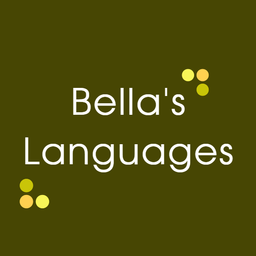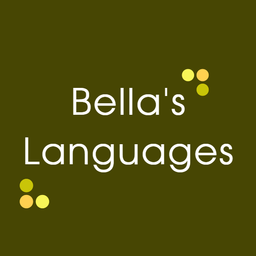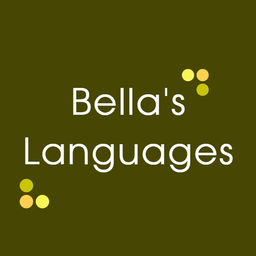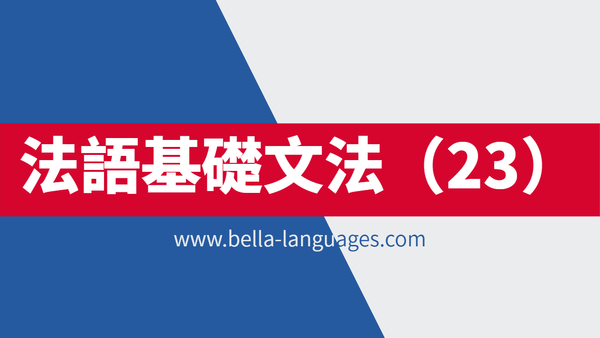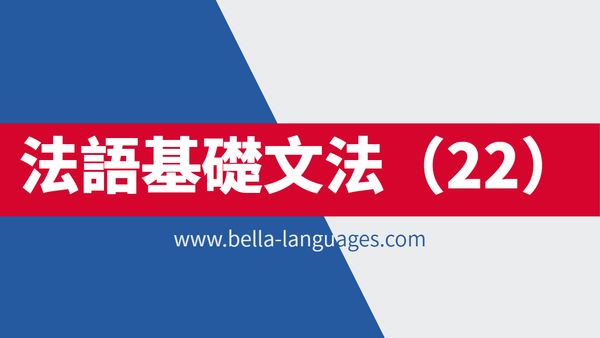Emily in Paris📺艾米莉在巴黎
收看影片:

逐句精讲:

Okay. So should we just get this out of the way?
好,要赶快写一写吗?
get something out of the way to finish something 完成某事
拓展例句:
- I like to get my homework out of the way on a Friday night so that I can enjoy the weekend. 我喜欢在周五晚上完成作业,这样我就可以享受周末了。
Excuse me?
你说什么?
Excuse me语法详解:
1. 引起注意:
- 场合: 当你想引起某人的注意时,比如在公共场合想要问路、询问信息或吸引服务员的注意。
- 例句:
- "Excuse me, could you tell me where the nearest restroom is?"(不好意思,请问最近的洗手间在哪里?)
- "Excuse me, may I ask you a question?"(打扰一下,我可以问你一个问题吗?)
2. 请求让路:
- 场合: 当你在拥挤的地方需要通过时,可以使用“Excuse me”来礼貌地请求别人让开。
- 例句:
- "Excuse me, I need to get by."(不好意思,我需要过去。)
- "Excuse me, could you move your bag?"(不好意思,你能把包移开一下吗?)
3. 表达歉意:
- 场合: 当你无意中打扰到别人,或者在一些情况下需要表达轻微的歉意时,可以用“Excuse me”。
- 例句:
- "Excuse me, I didn't mean to bump into you."(对不起,我不是故意撞到你的。)
- "Excuse me for interrupting, but I have a quick question."(打扰一下,不好意思,我有个快速的问题。)
4. 请求重复或确认:
- 场合: 当你没有听清楚对方说的话,或者不确定对方刚刚说了什么时,可以使用“Excuse me”来请求对方重复或确认。
- 例句:
- "Excuse me, could you say that again?"(不好意思,你能再说一遍吗?)
- "Excuse me, what did you just say?"(不好意思,你刚刚说什么?)
5. 表示不满或困惑:
- 场合: 当你对某人的话感到惊讶、不满或者不理解时,可以用“Excuse me”表达这种情感。语气上可能带有一些挑战或质疑。
- 例句:
- "Excuse me? Are you serious?"(什么?你是认真的吗?)
- "Excuse me? I don't think that's correct."(什么?我觉得那不对。)
6. 回应打喷嚏或类似情况:
- 场合: 在打喷嚏后,有时人们会说“Excuse me”表示礼貌,意思是“对不起,失礼了”。
- 例句:
- After sneezing: "Excuse me."(打完喷嚏后:不好意思。)
The assignment? Were you even paying attention? We're supposed to interview each other.
写作业?你刚没在听吗?我们要互相访问。
assignment /əˈsaɪnmənt/ An assignment is a task or piece of work that you are given to do, especially as part of your job or studies. 任务; 作业
pay attention 注意,留心
拓展例句:
- I didn't pay attention to what she was saying. 我没有注意她在说什么。
be supposed to 表示应该做某事
inter·view /ˈɪntərvjuː/ a private meeting between people when questions are asked and answered(私下的)面谈,会谈,晤谈
拓展例句:
- an interview with the careers adviser 和择业顾问的面谈
Fine. I'm English, obviously. Born and raised in London.
好吧,我是英国人,伦敦出生长大。
Eng·lish /ˈɪŋɡlɪʃ/ the people of England 英格兰人
born and bred idiom (also born and raised, born and brought up) used to say that someone was born and grew up in a particular place, and usually that they are a typical example of someone who lives there 土生土长
拓展例句:
- He's a Parisian born and bred. 他是个土生土长的巴黎人
I like football, and I work at a bank. What else is there that you need to know?
喜欢足球,在银行上班,你还要知道什么吗?
What else is there 还有什么
拓展例句:
- Tell me, what else is there for me to know? 那你告诉我,有什么是我不知道的呢?
- What else is there to complain about? 还有什么可抱怨的?
We good?
我们写完了吗?
We good = Are we good 用于确认两个人之间的关系或某个问题是否已经得到解决
Um…Well, no, that's barely even three verbs, and you haven't even interviewed me!
还没,连三个动词都不到,你也还没访问我
bare·ly /ˈberli/ in a way that almost does not happen or exist 几乎不;几乎没有
verb /vɜːrb/ 动词
Emily Cooper, American, loves iced lattes, the beach…And what? Curling up with a good book.
Emily Cooper ,美国人,喜欢冰拿铁,海滩,还有什么?窝着看好书?
iced latte 冰拿铁(一种咖啡和牛奶搭配的混合饮料)

beach /biːtʃ/ 海滩

and what? 还有什么?
curl ˈup to lie or sit with your back curved and your arms and legs bent close to your body 蜷曲着坐(或躺)

Let's think. Gemini.
让我想想,双子座
Gem·ini /ˈdʒemɪnaɪ/ 双子座
Gemini? As if.
双子座?怎么可能?
As if I very much doubt it.“不可能”、“当然不”
拓展例句:
- I can remember our wedding as if it were yesterday. 我们的婚礼我记忆犹新,就像昨天一样。
I kinda nailed the rest, right?
其他的都没说错吧?
nail /neɪl/ perform (an action or task) perfectly. “准确地做到” 或 “做得非常好”
Why are you in Paris if you hate it so much?
你这么讨厌巴黎干嘛还要来?
Well, one, for work, as I've said. And two, I don't hate it. I just don't buy into the hype.
第一,我说过是工作。第二,我不是讨厌巴黎,只是不喜欢赶流行。
as I've said(before)就像我之前说的那样
拓展例句:
- As I've said before, I see failure as a stepping stone to success. 就像我之前说的那样,失败是成功之母。
hype /haɪp/ 大肆宣传,炒作
- media hype 媒体炒作
buy into the hype a belief or opinion that has been accepted without question, usually due to its popularity or because they have been convinced by others. 赶流行,跟风
Paris is built on a fantasy, and I just happen to be able to see right through it.
巴黎是建构在幻想上,我只是刚好能看清现实。
fantasy/ˈfæntəsi/ 幻想;想象
happen to do 碰巧
be able to 能够
see right through it 看透一切
see through If you see through someone or their behaviour, you realize what their intentions are, even though they are trying to hide them. 看穿; 识破
right completely 完全地
look,This place is portrayed as this end-all-be-all of romantic settings in books, movies, and Instagram, right?
这个地方在书里、电影里和IG上被描绘成最经典的浪漫场景,对吗?
por·tray /pɔːrˈtreɪ/ ~ sb/sth (as sb/sth)to describe or show sb/sth in a particular way, especially when this does not give a complete or accurate impression of what they are like 将…描写成;给人以某种印象;表现
be-all and end-all If something is the be-all and end-all to you, it is the only important thing in your life, or the only important feature of a particular activity. 一切的一切; 最重要的因素。终极目的
拓展例句:
- For some people, competing is the be-all and end-all of their running. 对于一些人来说,跑步的全部意义就是比赛。
but the reality is, choking on cigarette smoke, sidewalks covered in dog shit, and tourist traps left and right......
但现实的巴黎弥漫让人窒息的烟味,人行道布满狗大便,到处都在骗观光客的钱......
reality /riˈæləti/ is the truth 真实情形
choke on 呛住,哽住
cigarette smoke 香烟烟雾
sidewalk /ˈsaɪdwɔːk/(马路边的)人行道 (pavement /ˈpeɪvmənt/也是人行道的意思)
covered in 沾满
拓展例句:
- covered in darkness 被黑暗覆盖
tourist trap 敲诈旅客,旅游陷阱
left and right 四处;到处
And scam artists just like any other big city.
还有骗子横行,就像其他的大城市
scam /skæm/ <非正式>欺诈,骗局
scam artist 骗子
And I'm sure London is just the same.
我确定伦敦也一定一样。
At least London is up-front about what it is. I mean, London doesn't pretend to be something it's not.
伦敦不会这么做作,起码伦敦很诚实。
up-front /ʌp frʌnt/ If you are up front about something, you act openly or publicly so that people know what you are doing or what you believe. 坦率的
拓展例句:
- You can't help being biased so you may as well be up front about it. 你阻止不了别人对你的偏见,因此你还不如就大大方方地接受。
pretend to be 假装成...
拓展例句:
- you don't need to pretend to be something you are not. 你没有必要假装那些不是自己的样子。
Meanwhile, Paris' reputation is all a façade. Smoke and mirrors.
巴黎的名声也是虚有其表的障眼法,让人相信虚假的幻想
Meanwhile /ˈmiːnwaɪl/ used to compare two aspects of a situation(比较两方面)对比之下
repu·ta·tion /ˌrepjuˈteɪʃ(ə)n/ 名誉;名声
fa·çade /fəˈsɑːd/(虚假的)表面,外表
Smoke and mirrors irrelevant or misleading information serving to obscure the truth of a situation 烟与镜; 混淆是非; 混淆视听

继续阅读:






